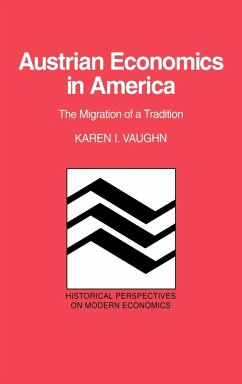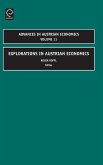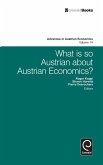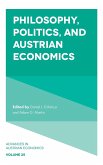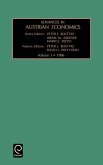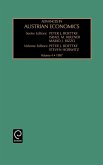This book examines the development of the ideas of the new Austrian school from its beginnings in Vienna in the 1870s to the present. The modern Austrian school is generally known for holding rigorous but heterodox views on a variety of issues: subjectivism, entrepreneurship, market processes, and the use of mathematics in economic theory. Professor Vaughn traces the origin of these views and shows how they form aspects of a largely coherent theoretical perspective organized around the problem of time and ignorance in human affairs. She demonstrates how concern for the notions of time and ignorance permeates Carl Menger's original works, primarily in his descriptions of market processes and in his linking of economic growth to the generation and dissemination of knowledge in society. The recognition of the importance of time and ignorance was the key that permitted other Austrians such as Ludwig von Mises and Friedrich Hayek to recognize the fatal flaws in central economic planning, evidenced as early as the 1930s, brought about by limited knowledge and time lags. Despite current controversy, Professor Vaughn suggests that modern Austrian economics has begun to articulate a promising alternative research program that examines the implications of real time and ineradicable ignorance to economic theory and methodology. For anyone who is skeptical of the increasing formalism of modern economic theory, this cogent account of the Austrian approach should prove a refreshing change.
Hinweis: Dieser Artikel kann nur an eine deutsche Lieferadresse ausgeliefert werden.
Hinweis: Dieser Artikel kann nur an eine deutsche Lieferadresse ausgeliefert werden.

